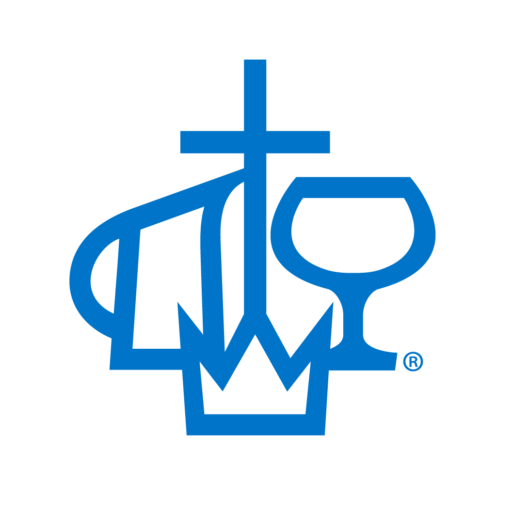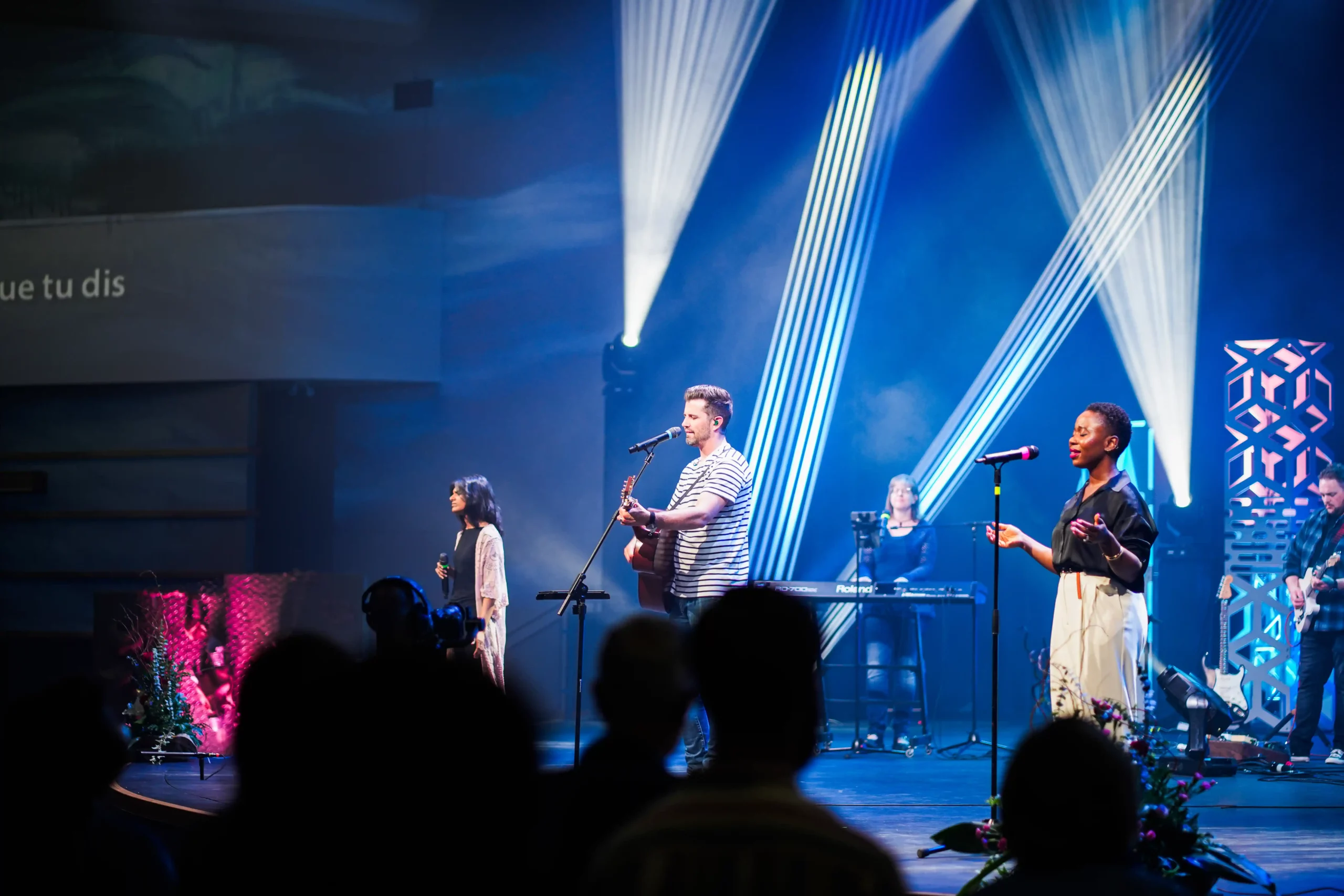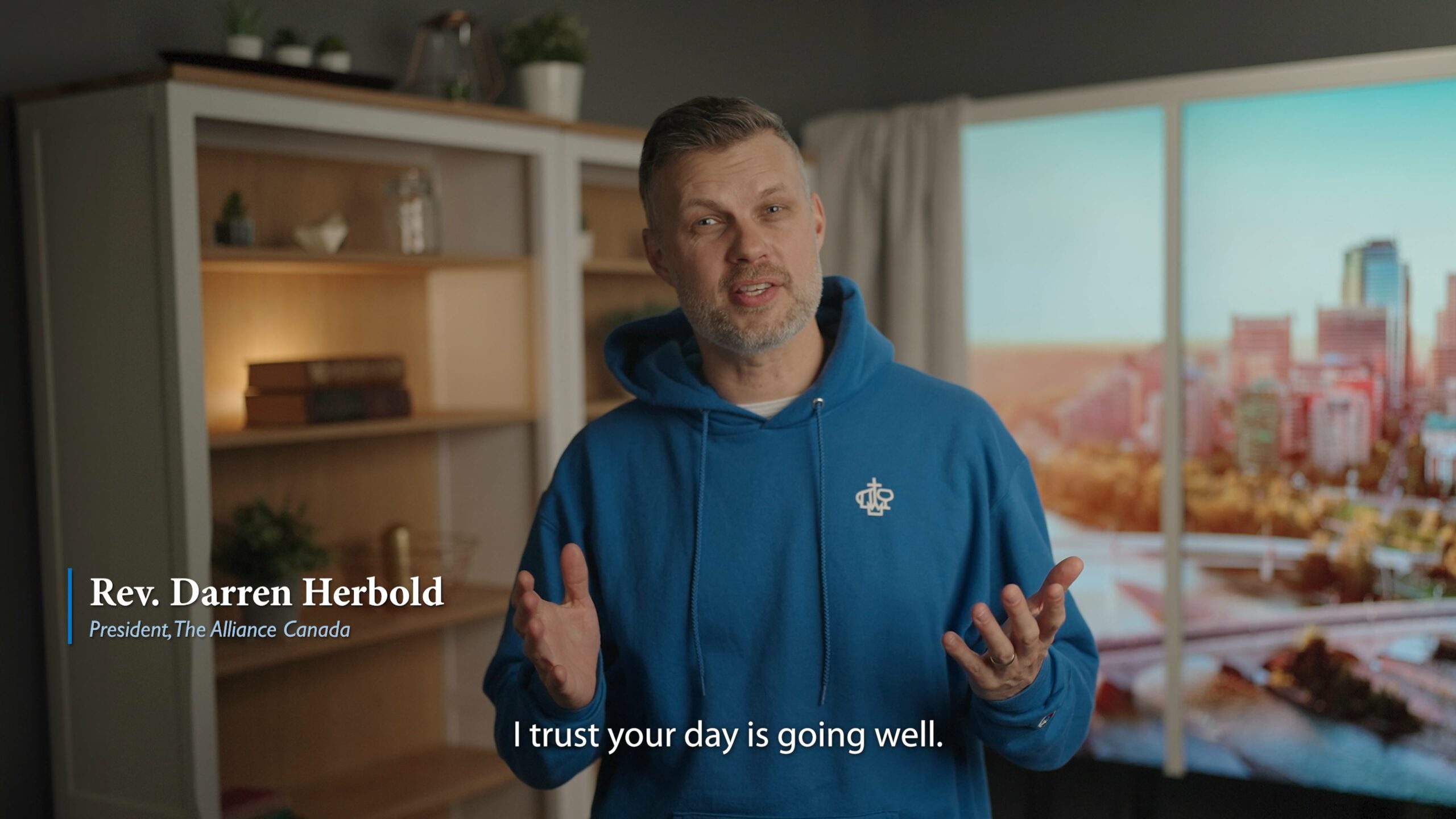Download the discussion guide as a pdf
Ice Breaker Question:
What are areas in your life that have opened your eyes to God’s love?
Verse(s):
Great Commission: Then the eleven disciples went to Galilee, to the mountain where Jesus had told them to go. When they saw him, they worshiped him; but some doubted. Then Jesus came to them and said, “All authority in heaven and on earth has been given to me. Therefore go and make disciples of all nations, baptizing them in the name of the Father and of the Son and of the Holy Spirit, and teaching them to obey everything I have commanded you. And surely I am with you always, to the very end of the age.” (Matthew 28:16-20).
Great Commandment: “Teacher, which is the greatest commandment in the Law?” Jesus replied: “‘Love the Lord your God with all your heart and with all your soul and with all your mind.’ This is the first and greatest commandment. And the second is like it: ‘Love your neighbor as yourself.’ All the Law and the Prophets hang on these two commandments.” (Matthew 22:36-40).
Study: Jesus’ final statement in Matthew is so revealing. In Matthew 28:16 the disciples “go where Jesus had told them to go,” and they “worshiped him; but some doubted” (Matthew 28:17). Isn’t that the most curious thing to read, yet encouraging at the same time? Face to face with the resurrected Christ, it’s possible to both worship, and doubt, and Jesus seems to say “Okay, I can work with this!”
We sometimes skip to the verse 19 of this Great Commission, the “go” part, but look at where Jesus starts. He says, “All authority in heaven and on earth has been given to me” (Matthew 28:18). As much as we fail to see it sometimes in our broken world, Jesus has already won. Jesus has been given all authority in Heaven and on earth. Everything has been placed under His rule, even while we wait for it to be placed under His feet.
But observe the critical turn with what Jesus says next. He could say, “therefore go home and relax, disciples, ‘cause I got this.” But He doesn’t say that. He tells us to get to work.
The Great Commandment is a test by the Pharisees, who heard about the previous interaction in Matthew 22:23-33.
That same day the Sadducees, who say there is no resurrection, came to him with a question. “Teacher,” they said, “Moses told us that if a man dies without having children, his brother must marry the widow and raise up offspring for him. Now there were seven brothers among us. The first one married and died, and since he had no children, he left his wife to his brother. The same thing happened to the second and third brother, right on down to the seventh. Finally, the woman died. Now then, at the resurrection, whose wife will she be of the seven, since all of them were married to her?”
Jesus replied, “You are in error because you do not know the Scriptures or the power of God. At the resurrection people will neither marry nor be given in marriage; they will be like the angels in heaven. But about the resurrection of the dead—have you not read what God said to you, ‘I am the God of Abraham, the God of Isaac, and the God of Jacob’? He is not the God of the dead but of the living.”
When the crowds heard this, they were astonished at his teaching (Matthew 22:23-33).
The parallel account of the Great Commandment is in Luke 10, where the conversation continues with “Who is my neighbour?” and Jesus answers with the parable of the Good Samaritan. Loving your neighbour isn’t just about loving those people who are living next to you, it’s about loving all people, even those who seem far away, or disconnected.
On one occasion an expert in the law stood up to test Jesus. “Teacher,” he asked, “what must I do to inherit eternal life?”
“What is written in the Law?” he replied. “How do you read it?”
He answered, “‘Love the Lord your God with all your heart and with all your soul and with all your strength and with all your mind’; and, ‘Love your neighbor as yourself.’”
“You have answered correctly,” Jesus replied. “Do this and you will live.”
But he wanted to justify himself, so he asked Jesus, “And who is my neighbor?”
In reply Jesus said: “A man was going down from Jerusalem to Jericho, when he was attacked by robbers. They stripped him of his clothes, beat him and went away, leaving him half dead. A priest happened to be going down the same road, and when he saw the man, he passed by on the other side. So too, a Levite, when he came to the place and saw him, passed by on the other side. But a Samaritan, as he traveled, came where the man was; and when he saw him, he took pity on him. He went to him and bandaged his wounds, pouring on oil and wine. Then he put the man on his own donkey, brought him to an inn and took care of him. The next day he took out two denarii and gave them to the innkeeper. ‘Look after him,’ he said, ‘and when I return, I will reimburse you for any extra expense you may have.’
“Which of these three do you think was a neighbor to the man who fell into the hands of robbers?”
The expert in the law replied, “The one who had mercy on him.”
Jesus told him, “Go and do likewise” (Luke 10: 25-37).
Folks, we are called to make disciples and to love those around us. Encountering the risen Christ and worshipping Him is a moment that leads to our assignment as loving disciple-makers, raising up disciples who will, in turn, multiply more disciples. Imagine if every believer in our movement spent the next year with just one other person helping that individual mature in their relationship with Jesus, and then empowered them to do the same with someone else.
Learn More about South Asia:
South Asia has a population of over 4.5 billion people, and less than 1% of those people are Christian. South Asia is the single largest concentration of least-reached people in the world—these are people who have never heard about Jesus or had access to the Gospel. With such an unfathomably large number, the need is immense. If we want to see lives transformed, we must be willing to establish long-term partnerships, invest in people, and pray fervently.
The Alliance is partnered with an organization in South Asia who is raising leaders who are called to lead multiplying disciples. Our partner has communities with people that are city dwellers as well as people in jungle villages and remote tribes. We are thrilled to be an international partner that is engaging in transforming lives in South Asia.
People who live in this part of the world are hungry for this revelational love. They are waiting to hear the Good News. How will they hear if we do not make the effort to reach them and tell them? No one person can do this alone, but together through a global partnership we can see eternal transformation.
Reflect/Discuss:
- When do you find it difficult to love God?
- Who is someone you find difficult to love? (Consider your neighbourhood, work, school, and church.)
- What would it look like if you began showing love to that person, or to someone from that group of people?
- What would it take for you to begin taking that action?
- How are you going to show love to God this week? What about to those around you?
- Is there anything that keeps you from being passionate about God’s message of love, forgiveness, and salvation that you keep it to yourself? If so, what are those things?
- What would it look like if you were so excited about the message of God’s love and salvation that you couldn’t contain yourself?
- Make a list of the people that are in your life who are important to you. How many of those people don’t know Christ?
Prayer Points:
- Pray for the people in your life who doesn’t know Christ
- Pray for people in South Asia who don’t know Christ
- Pray that God would move in people’s hearts to fulfill the Great Commission and the Great Commandment
Share:
Find more posts about:
The Alliance Canada
Support the mission
The Global Advance Fund (GAF) is a pooled fund that supports our workers in Canada and around the world to share the Gospel with people who haven't yet heard the name of Jesus. Your continued generosity equips and sustains our workers and their ministry.








